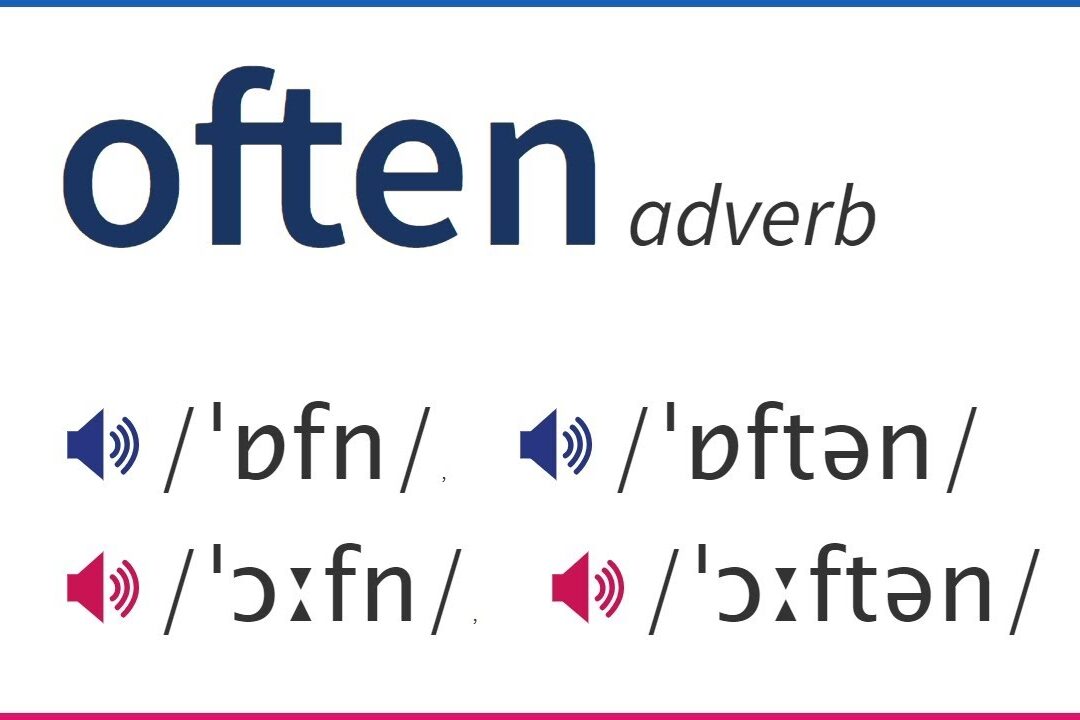1. Silent Letters Are Fossils of Speech

Ever wonder why English words have letters we never say? Those quiet letters once spoke loudly in Old English. Words like “knight” were “kuh-nicht,” and “gnaw” had a clear “g.” Over centuries, people softened their speech, dropping extra sounds as language evolved. But spelling didn’t change with it. Instead, silent letters stayed behind like fossils, tiny reminders of how our ancestors once spoke. They show that language is alive, always moving, even if writing stands still. Every unspoken letter is a whisper from the past, echoing how English grew into what we know today.
2. Blame the French for a Lot of Them

When the French invaded England in 1066, their language left fingerprints all over English. They brought fancy spelling rules that made words look more refined. “Debt” gained a silent “b,” “island” borrowed an unnecessary “s,” and “honor” picked up an extra “u.” French was seen as stylish and powerful, so English scribes copied it. Those spelling habits stuck around long after the Normans were gone. Every time we puzzle over a silent “s” or “b,” we’re seeing the legacy of French influence still woven into the words we write and read today.
3. The Printing Press Froze the Weirdness

When William Caxton introduced the printing press to England in the 1400s, he didn’t just spread knowledge. He accidentally trapped English spelling in time. Before printing, words were written however people felt like spelling them. But printing required consistency, so spellings got locked in place while pronunciation kept changing. Printers sometimes added extra letters for balance, making “nite” into “knight.” Over time, those decisions became permanent. Now we’re living with a frozen version of English, one that records how it once sounded but not how it’s actually spoken today.
4. Scholars Got Fancy with Latin

During the Renaissance, scholars wanted English to seem more intelligent, so they dressed it up to resemble Latin. “Dette” became “debt,” “doute” became “doubt,” and “subtil” became “subtle.” These changes didn’t alter pronunciation, only appearance. Ordinary people kept speaking the same, but the words looked grander on the page. What began as an effort to add sophistication ended up confusing generations of learners. Those unnecessary silent letters were never about sound; they were about style. They remain as proof that even language once cared about looking smarter than it really was.
5. Words That Would Sound Ridiculous If We Spoke Them Literally

Imagine if we pronounced every letter we see. “Psychology” would begin with a hard “puh,” “castle” would include a sharp “t,” and “receipt” would sound like “re-ceept.” Even “knight” would become “kuh-nicht.” Speaking that way would make English sound clunky and robotic. Silent letters smooth out the language, letting it flow more naturally. Without them, our words would sound awkward and harsh. So while they may seem pointless on paper, they’re the reason English sounds softer, friendlier, and easier on the ear than its older, rougher form ever did.
6. They Help Tell Words Apart

Silent letters might be invisible in speech, but they’re useful in writing. Imagine confusing “knight” and “night” or “sign” and “sin.” Those quiet letters save us from chaos. Even the silent “e” at the end of “hat” versus “hate” changes meaning completely. Silent letters help words stand apart when they otherwise look the same. They’re like small clues built into the language, giving it order and clarity. Without them, reading would be harder, and English would lose one of its clever ways of keeping meaning clear without changing how we speak.
7. Some Languages Have It Worse

English isn’t the only language full of hidden sounds. French has plenty of silent letters, like the “p” in “beaucoup” or the “t” in “chat.” Danish is famous for swallowing entire chunks of words, while Spanish once had many silent letters but removed most of them over time. English learners may sigh at words like “knight” or “psychic,” but they’re not alone in their struggle. Silent letters appear in nearly every major language, proving that speech changes faster than spelling no matter where you live or what you speak.
8. They Make Spelling Bees Brutal

Silent letters are the secret villains of every spelling competition. Kids face words like “pneumonia,” “gnome,” and “mnemonic” that sound nothing like they look. Without these sneaky letters, spelling bees would be easier, but maybe also less thrilling. The challenge of remembering invisible sounds makes English spelling a true mental test. It’s part logic, part memory, and part bravery. Every round is a reminder that English isn’t just a language; it’s a puzzle. Silent letters make it tricky, but they also make it entertaining and worth mastering.
9. Attempts at Spelling Reform Always Fail

People have tried to fix English spelling for centuries, but silent letters always win. In 1906, President Theodore Roosevelt even ordered government printers to use simpler spellings like “thru” for “through.” The backlash was instant, and Congress refused. Others have tried too, but no one has succeeded. Changing spelling means changing history, and English speakers love tradition. We complain about inconsistencies, yet we cling to them. Silent letters survive because they connect us to the past, and no one wants to rewrite the entire language to make things easier.
10. Silent Letters Can Be Regional

Depending on where you live, some silent letters might not be silent at all. In British English, “often” usually drops the “t,” but many Americans pronounce it clearly. Americans skip the “h” in “herb,” while British speakers keep it. Even “schedule” changes its opening sound across regions. These differences show that silent letters aren’t absolute; they shift with accents and culture. English is flexible like that. It’s not one single language but a patchwork of voices that bend the rules, letting silence speak differently depending on where you’re from.
11. Some Are Total Accidents

Not every silent letter was planned. Some sneaked in through honest mistakes. The “s” in “island” was added by scribes who confused it with the French word “isle,” even though the original Old English “iegland” never had one. Once printed, the error became permanent. Language keeps such quirks because people keep using them. Over time, these little accidents harden into rules no one questions. Its proof that English didn’t grow through perfect design. It evolved through human error that somehow became tradition we can’t imagine correcting anymore.
12. They Sometimes Sneak Back into Speech

Silent letters aren’t always completely silent. In some places, they come back to life. Older speakers sometimes pronounce the “t” in “often,” and some Scottish accents bring back the “l” in “golf” or “calf.” It’s a reminder that language never stands still. What’s quiet in one century might reappear in the next. English pronunciation changes constantly, even when spelling doesn’t. Silent letters are like ghosts of old sounds that occasionally whisper again, proving that silence in language can still find its voice from time to time.
13. They Can Mark Social Class

Long ago, how you pronounced certain letters could reveal your social background. Dropping the “h” in “herb” or “honor” was considered common in Britain, while pronouncing it showed education or class. Linguists call these subtle clues “shibboleths,” meaning social markers hidden in language. Even mispronouncing the silent “t” in “castle” or “listen” could expose where someone came from. While class rules around speech have softened today, we still notice small differences in pronunciation that silently hint at who we are or where we’ve been.
14. They Hide in Everyday Words We Don’t Notice

Most of us no longer think about silent letters because they hide in plain sight. Words like “would,” “talk,” “half,” and “thumb” look perfectly normal until someone points out their missing sounds. We read them without a thought because we’ve known them forever. It’s only when children start learning to read that we realize how odd they are. Silent letters blend so easily into daily language that they stop feeling strange. They’re quiet companions we use every day, invisible but always there, holding the history of English right in front of us.
15. Some Are Just There for Decoration

Some silent letters exist simply because someone thought they made words look prettier. During the Renaissance, scholars often added extra letters from Latin or Greek roots just for style. The “p” in “receipt” or the “b” in “subtle” didn’t change how people spoke, only how impressive words looked on paper. These decorative letters became part of English identity. They’re like ornaments on language, unnecessary but hard to remove once attached. Even now, they make our words look smarter than they really need to be.
16. They Trip Up Learners Everywhere

For anyone learning English, silent letters are confusing and unfair. Why does “knife” start with “k” but “know” sounds the same without it? Why does “gh” change from silent in “though” to sounding like “f” in “tough”? Teachers have to explain that these rules aren’t logical; they’re historical. Learners make charming mistakes at first, saying “kuh-nife” or “iss-land,” but mastering silent letters becomes a milestone. Once they stop overpronouncing them, they’ve reached true fluency, understanding that English isn’t learned by rules but by rhythm.
17. They Add Quirk and Charm

English would be plainer without silent letters. Spelling everything exactly as it sounds would make words look cold and mechanical. Silent letters add personality, connecting modern English to centuries of change. They make the language feel alive, full of stories hidden between letters. Without them, words like “knight” or “psychic” would lose their mystery. Silent letters give English its depth and texture. They remind us that every word has history, shaped by people, mistakes, and time, all blending into the language we love today.
18. They’re Probably Here to Stay

No matter how many times people call for simpler spelling, silent letters keep winning. Reform is expensive, and tradition is powerful. Silent letters hold the memories of English inside them, connecting the modern world with its past. They may frustrate us, confuse learners, and fill spelling tests with traps, but they also make the language richer. They remind us that English isn’t meant to be perfect. It’s meant to be human, shaped by change and stubborn charm. Silent letters aren’t going anywhere. They’re the quiet heart of our words.
This story The Curious Case of Silent Letters: 18 Things You Never Say Out Loud in English was first published on Daily FETCH


